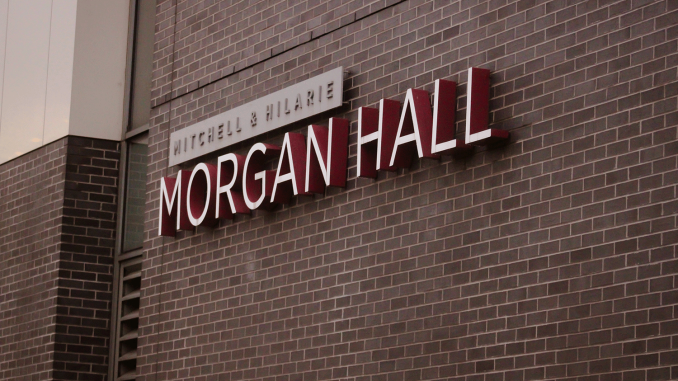
Temple University is progressing towards plans to end its asymptomatic testing program in October and is loosening some of the university’s COVID-era mitigation efforts, said Mark Denys, director of Student Health Services.
“We’ll start reducing the days and then by the end of October the plan is, unless COVID changes, is no to longer have that asymptomatic,” Denys said.
Changes in how students test for the illness have prompted Student Health Services to pivot away from mass testing towards maintaining a system that acknowledges the endemic nature of the virus, while continuing to make some resources available for students and staff, like symptomatic testing.
“COVID is going to be with us for the rest of our lives,” Denys said. “It’s not as important to look at the numbers every single day.”
Asymptomatic COVID-19 testing is currently being administered at Morgan Hall while the Paley building undergoes renovations.
Before testing for those without symptoms is eliminated, Temple plans to rotate the use of its testing sites by offering flu vaccinations on some days and asymptomatic testing on others. The different offerings will give students and faculty the opportunity to seek both vaccinations and testing throughout the week depending on how frequently they’re on campus, Denys said.
Testing at asymptomatic sites has dropped significantly, dropping from 1,000 people per day to approximately between 40 and 50, Denys said.
Camryn Krumbhaar, a junior neuroscience major, believes the university should keep asymptomatic testing for the duration of the academic year because people are still at risk of catching the virus.
“I definitely think they should have kept it for like, at least until the spring semester is over, Krumbhaar said. “We’re still in a pandemic. People are still sick.”
Symptomatic will continue at Morgan Hall indefinitely, Denys said.
Temple unveiled plans to slowly phase out asymptomatic testing in early August and loosened the university’s mask mandate by no longer requiring face coverings in non-healthcare settings.
The university canceled a slew of mitigation efforts in recent months including axing PCR testing in May and ending use of its COVID-19 case dashboard. Temple also no longer requires close contacts of students who contract COVID-19 to quarantine.
After requiring students taking in-person classes and living in residence halls to test during the Spring 2021 semester, only students who were exempt from the university’s Fall 2021 vaccine mandate were required to take scheduled COVID-19 tests during the past academic year.
Anne Alexander, a senior neuroscience major, believes the removal of asymptomatic testing will not affect many students because she trusts that those who are exposed to the virus will protect themselves, she said.
The Philadelphia Health Department reported 1,385 positive tests during the first week of August 2021 and 2,400 positive tests in the first week of this past August.
The number of positive cases on campus during first two weeks of classes has also increased since 2021, rising from 222 last academic year to 298 in the first two weeks of this year’s fall semester. Omicron, a more infectious strain of COVID-19 compared to Delta, is likely responsible for the increase in cases, Denys said.
“In the fall, we were dealing with Delta. Delta was nowhere near as transmissible as Omicron,” Denys said. “So, Omicron being as transmissible as it is, we expected there to be more cases this fall as compared to last fall.”
Temple plans to provide students with free, at-home COVID testing kits in November after the asymptomatic testing is phased out. Students will only need their Temple ID to receive the tests at various pick-up sites around campus.
The university also plans to distribute the updated COVID-19 booster shot, but Denys recommended that eligible students receive the shot immediately through pharmacies.
Students are still required to submit their test results to the Student Health Portal. Despite Temple rolling back some mitigation efforts, Denys hopes that students still take proactive steps to stay healthy.
“Wearing a mask, being up to date on their boosters, that’s what folks can do to protect themselves right now,” he said.
Fallon Roth contributed reporting.



Be the first to comment